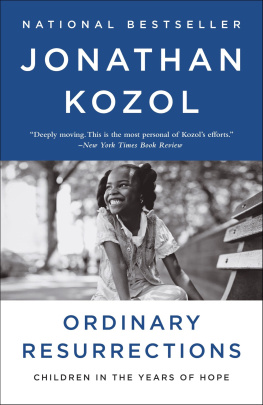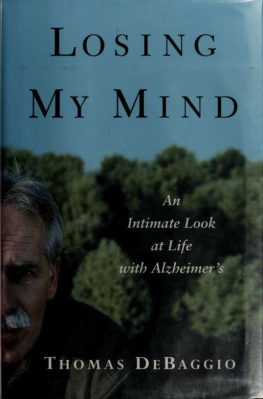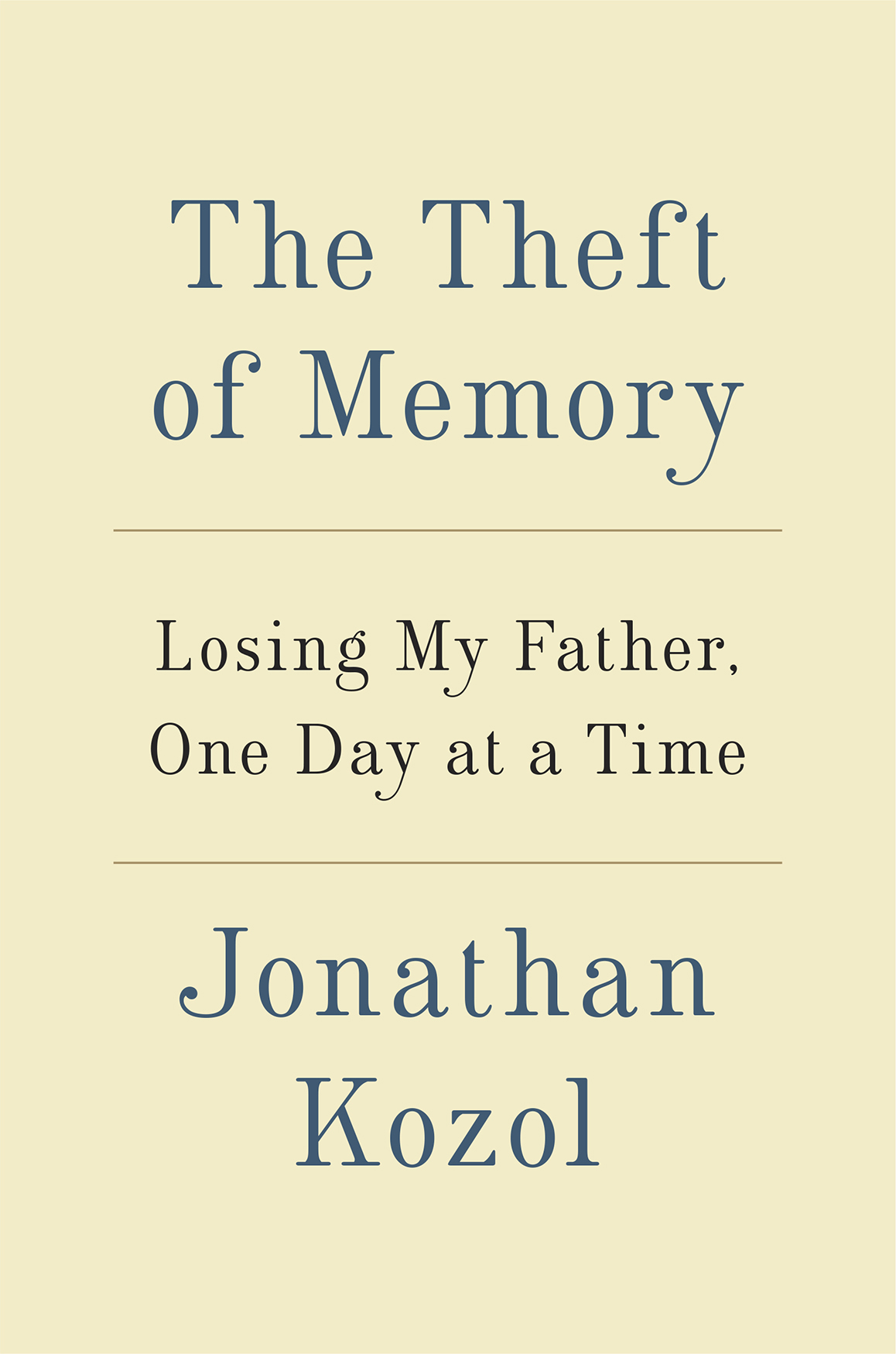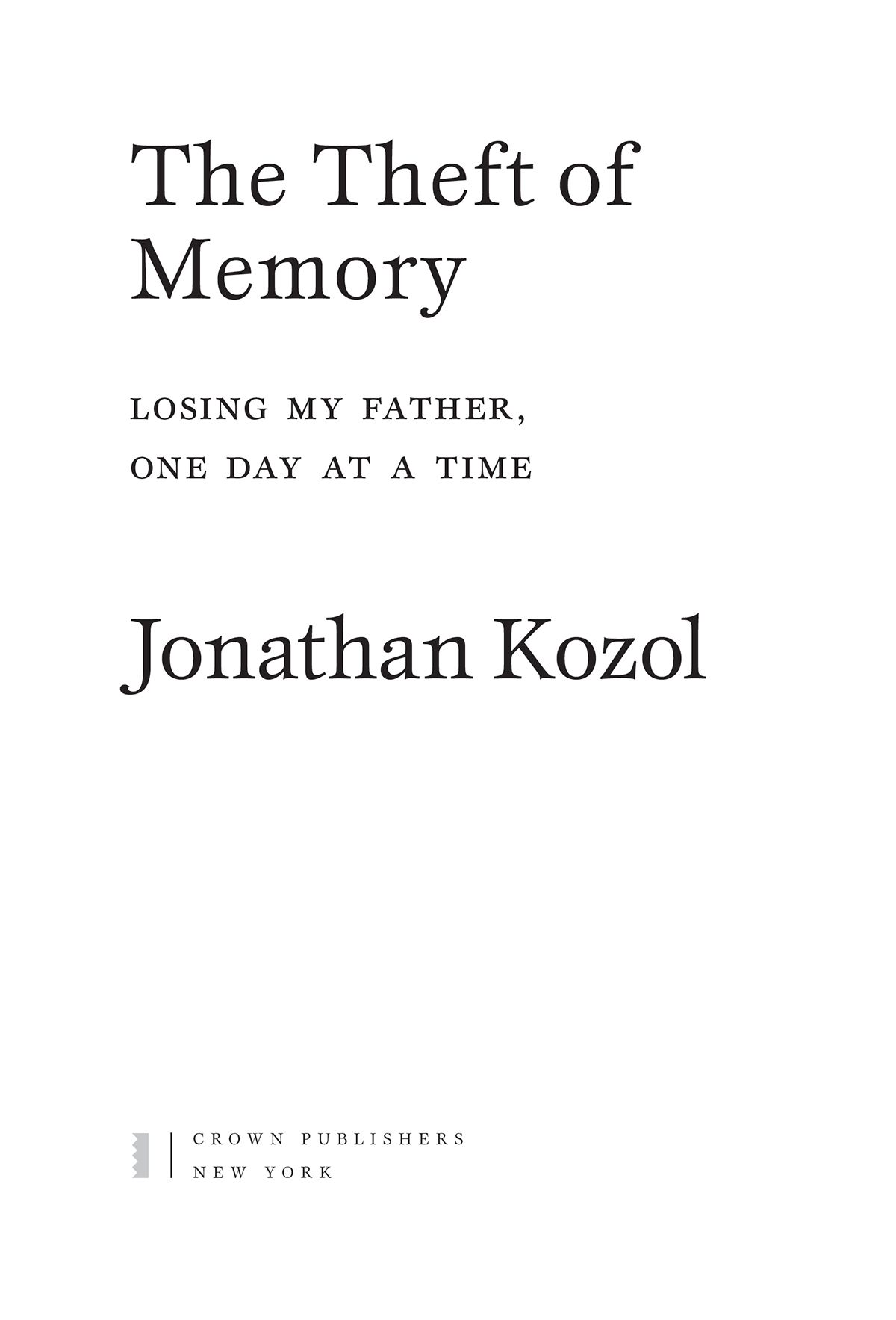Kozol Harry L. - The theft of memory : losing my father, one day at a time
Here you can read online Kozol Harry L. - The theft of memory : losing my father, one day at a time full text of the book (entire story) in english for free. Download pdf and epub, get meaning, cover and reviews about this ebook. year: 2015, publisher: Crown Publishers, genre: Non-fiction. Description of the work, (preface) as well as reviews are available. Best literature library LitArk.com created for fans of good reading and offers a wide selection of genres:
Romance novel
Science fiction
Adventure
Detective
Science
History
Home and family
Prose
Art
Politics
Computer
Non-fiction
Religion
Business
Children
Humor
Choose a favorite category and find really read worthwhile books. Enjoy immersion in the world of imagination, feel the emotions of the characters or learn something new for yourself, make an fascinating discovery.

- Book:The theft of memory : losing my father, one day at a time
- Author:
- Publisher:Crown Publishers
- Genre:
- Year:2015
- Rating:4 / 5
- Favourites:Add to favourites
- Your mark:
The theft of memory : losing my father, one day at a time: summary, description and annotation
We offer to read an annotation, description, summary or preface (depends on what the author of the book "The theft of memory : losing my father, one day at a time" wrote himself). If you haven't found the necessary information about the book — write in the comments, we will try to find it.
House author Jonathan Kozols deeply personal biography of his father, a brilliant neurologist who suffered from Alzheimers.There are few writers of conscience who write as beautifully as Jonathan Kozol.Departing from the South Bronx and turning his sensitive eye to his own life and legacy, The Theft of Memory is Kozols most personal book to date, as it explores the life of his father, Harry. Dr. Harry L. Kozol was a nationally-renowned neurologist whose work helped establish the emerging fields of forensic psychiatry and neuropsychiatry. He was a remarkable clinician with unusual capacity to diagnose and identify neurological and psychotic illnesses in highly complicated and sophisticated people, including well-known artists, writers, and intellectuals. Notably, in Eugene ONeills last years, the playwright moved to Boston so that he could live close to Kozols fathers office. In addition to his successful private practice in Boston, Kozol operated in a grim arena marked by extreme violence. But while his role as a forensic expert placed him in the public eye for high-profile criminal defendants such as Albert DeSalvo (the Boston Strangler) and Patty Hearst, he was--as his son articulates--a healer of tormented people, not their judge, not their interrogator. With the same lyricism and clarity that have defined Kozols acclaimed work on education for decades,The Theft of Memory intimately describes Harrys vibrant life, the challenges following his self-diagnosis of Alzheimers, and the evolution of their relationship throughout. This unique biography will have a long shelf life as a moving portrait of an extraordinary man, a window into the heart of one of our nations foremost education activists, and a frank examination of how we come to terms with caregiving-- Read more...
Abstract: National Book Award winner Jonathan Kozol is best known for his fifty years of work among our nations poorest and most vulnerable children. Now, in the most personal book of his career, he tells the story of his fathers life and work as a nationally noted specialist in disorders of the brain and his astonishing ability, at the onset of Alzheimers disease, to explain the causes of his sickness and then to narrate, step-by-step, his slow descent into dementia. Dr. Harry Kozol was born in Boston in 1906. Classically trained at Harvard and Johns Hopkins, he was an unusually intuitive clinician with a special gift for diagnosing interwoven elements of neurological and psychiatric illnesses in highly complicated and creative people. One of the most intense relationships of his career, his son recalls, was with Eugene ONeill, who moved to Boston in the last years of his life so my father could examine him and talk with him almost every day. At a later stage in his career, he evaluated criminal defendants including Patricia Hearst and the Boston Strangler, Albert H. DeSalvo, who described to him in detail what was going through his mind while he was killing thirteen women. But The Theft of Memory is not primarily about a doctors public life. The heart of the book lies in the bond between a father and his son and the ways that bond intensified even as Harrys verbal skills and cogency progressively abandoned him. Somehow, the author says, all those hours that we spent trying to fathom something that he wanted to express, or summon up a vivid piece of seemingly lost memory that still brought a smile to his eyes, left me with a deeper sense of intimate connection with my father than Id ever felt before. Lyrical and stirring, The Theft of Memory is at once a tender tribute to a father from his son and a richly colored portrait of a devoted doctor who lived more than a century--
House author Jonathan Kozols deeply personal biography of his father, a brilliant neurologist who suffered from Alzheimers.There are few writers of conscience who write as beautifully as Jonathan Kozol.Departing from the South Bronx and turning his sensitive eye to his own life and legacy, The Theft of Memory is Kozols most personal book to date, as it explores the life of his father, Harry. Dr. Harry L. Kozol was a nationally-renowned neurologist whose work helped establish the emerging fields of forensic psychiatry and neuropsychiatry. He was a remarkable clinician with unusual capacity to diagnose and identify neurological and psychotic illnesses in highly complicated and sophisticated people, including well-known artists, writers, and intellectuals. Notably, in Eugene ONeills last years, the playwright moved to Boston so that he could live close to Kozols fathers office. In addition to his successful private practice in Boston, Kozol operated in a grim arena marked by extreme violence. But while his role as a forensic expert placed him in the public eye for high-profile criminal defendants such as Albert DeSalvo (the Boston Strangler) and Patty Hearst, he was--as his son articulates--a healer of tormented people, not their judge, not their interrogator. With the same lyricism and clarity that have defined Kozols acclaimed work on education for decades,The Theft of Memory intimately describes Harrys vibrant life, the challenges following his self-diagnosis of Alzheimers, and the evolution of their relationship throughout. This unique biography will have a long shelf life as a moving portrait of an extraordinary man, a window into the heart of one of our nations foremost education activists, and a frank examination of how we come to terms with caregiving
Kozol Harry L.: author's other books
Who wrote The theft of memory : losing my father, one day at a time? Find out the surname, the name of the author of the book and a list of all author's works by series.






